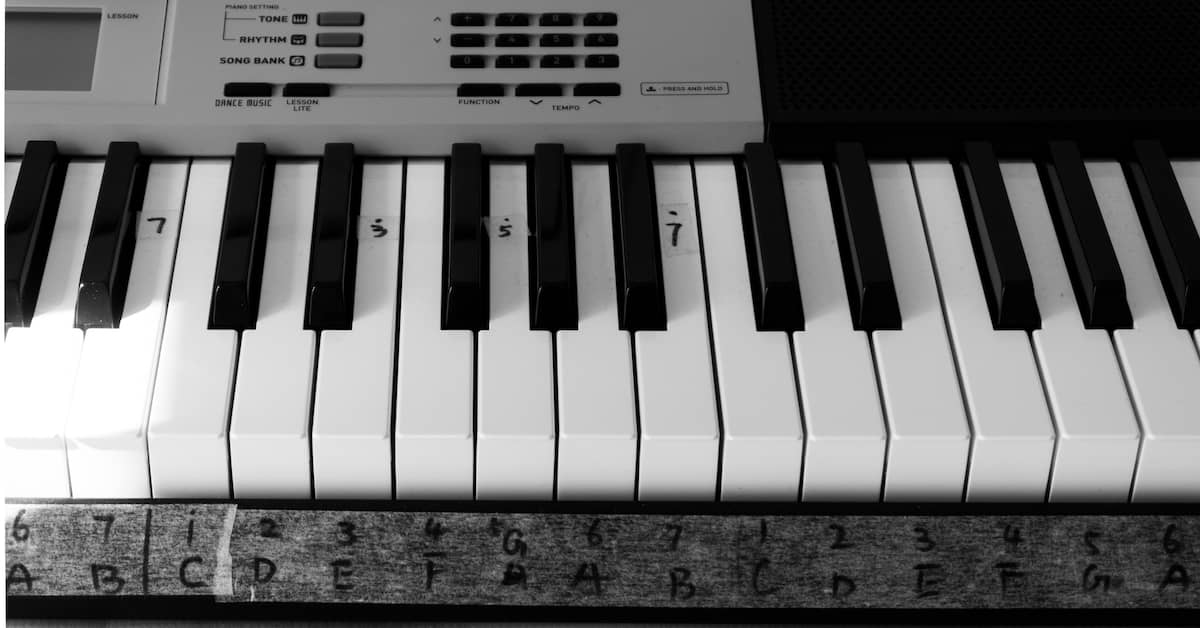
What if learning a new skill could enhance your memory, boost your mood, and sharpen your cognitive abilities—all in just a few weeks? Exciting new research reveals how picking up a musical instrument, like the piano, can create a symphony of brain benefits for adults of any age.
Key Takeaways
- Multisensory Benefits: Playing music engages vision, touch, and sound, leading to improved cognitive functions and better audio-visual processing.
- Mood Boosting Effects: Piano lessons significantly decrease depression and anxiety while promoting positive mood changes in both older and younger adults.
- Quick Results: Cognitive and emotional benefits, such as enhanced memory and stress reduction, can be seen in as little as a few weeks of learning.
How Playing Music Helps Your Memory
Listening to music can reduce stress, boost immunity, and improve cognitive skills. But if you want an even bigger mental boost, learn to play an instrument. Best of all, you don’t even have to be a talented musician to reap significant brain benefits…
Music can make us feel happy or sad; calm or energetic; exuberant or glum. For these reasons and more, music greatly enriches people’s lives. But making music is a step up from listening to it because playing an instrument is demanding and engages various sensory and motor systems and many high-level cognitive processes throughout the brain.
Multisensory Improvements Result In A Stronger Brain
For instance, playing music usually involves a combination of reading the score, finger movement, and monitoring touch and sound feedback. It also involves changes in tempo, volume, expression, and other dynamics to convey the feeling and emotion of a song.
All this combines to create beautiful sounds—or not—that provide multisensory training that benefits audio-visual and emotional processing in the brain.
It’s no surprise, therefore, that musicians have better multisensory processing abilities than non-musicians.
Studies show that for musicians, years of training have given their brains stronger structural and functional connections. And these connections have applications well beyond music…
They’re crucial for daily cognitive functions and social interactions. They impact almost every activity we participate in – from driving a car and crossing a road to finding someone in a crowd or watching a movie.
Playing Piano Boosts Memory And Lifts Mood
One study found that four months of piano training brought about improvements in various aspects of cognition, significantly decreased depression, and induced positive mood states in adults aged 60 to 84 when compared to the control group that engaged in painting, computer, and language lessons.
Another study found that after six months of piano training in adults aged 60 to 85, there were more robust gains in memory, verbal fluency, information processing, planning ability, and other cognitive functions compared with the control group.
Most recently researchers at the University of Bath in England randomly assigned 31 men and women with an average age of 30 to either piano lessons, listening to music, or other nonmusical tasks such as reading.
The lessons took place once a week for eleven weeks and consisted of 20 minutes of finger exercises followed by 40 minutes of practicing simple pieces ranging from 18th-century classical music to “When the Saints Go Marching In.”
Surprisingly Fast Results
Within just a few weeks of starting the piano lessons, the participants did a better job processing multisensory information, and these audio-visual improvements extended beyond their musical abilities. The researchers did not find this cognitive boost in the other groups listening to music or performing nonmusical tasks.
In addition to enhanced cognition, the piano players experienced reduced depression, anxiety, and stress scores after the piano training compared to before it.
Cognitive psychologist, music specialist, and senior study author Dr. Karin Petrini explained, saying, “Learning to play an instrument like the piano is a complex task. In scientific terms, the process couples visual with auditory cues and results in multisensory training for individuals.
“The findings from our study suggest that this has a significant, positive impact on how the brain processes audio-visual information even in adulthood when brain plasticity is reduced.”
Summary
Recent studies show that learning to play a musical instrument, such as the piano, offers significant brain benefits. Unlike listening to music, playing an instrument engages multiple sensory and motor systems, enhancing multisensory processing, memory, and emotional regulation. Even beginners see improvements in cognitive functions like planning and verbal fluency within weeks of starting lessons. Additionally, piano training can reduce stress, anxiety, and depression, making it a powerful tool for both mental and emotional well-being.
Frequently Asked Questions
Can beginners experience brain benefits from learning an instrument?
Absolutely! Studies show that even beginners see significant cognitive and emotional improvements after just a few weeks of training.
How does playing an instrument compare to listening to music?
While listening to music is beneficial, playing an instrument offers a more intense multisensory workout for the brain, enhancing cognitive functions.
What age group benefits most from learning to play music?
People of all ages can benefit, but research highlights notable gains in older adults, improving memory, mood, and planning skills.
Do I need to practice every day to see results?
No, even one lesson per week combined with practice can yield significant benefits, as shown in recent studies.
Can learning to play an instrument reduce stress and anxiety?
Yes, playing an instrument like the piano has been shown to lower stress and anxiety levels while improving mood.
- Seinfeld S, Figueroa H, Ortiz-Gil J, Sanchez-Vives MV. Effects of music learning and piano practice on cognitive function, mood and quality of life in older adults. Front Psychol. 2013 Nov 1;4:810. doi: 10.3389/fpsyg.2013.00810. PMID: 24198804; PMCID: PMC3814522.
- https://www.nationalgeographic.com/culture/article/140103-music-lessons-brain-aging- cognitive-neuroscience
- Che, Y., Jicol, C., Ashwin, C., & Petrini, K. (2022). An RCT study showing few weeks of music lessons enhance audio-visual temporal processing. Scientific Reports, 12(1), 1-14. https://doi.org/10.1038/s41598-022-23340-4
- https://www.bath.ac.uk/announcements/playing-the-piano-boosts-brain-processing-power- and-helps-lift-the-blues-study/
